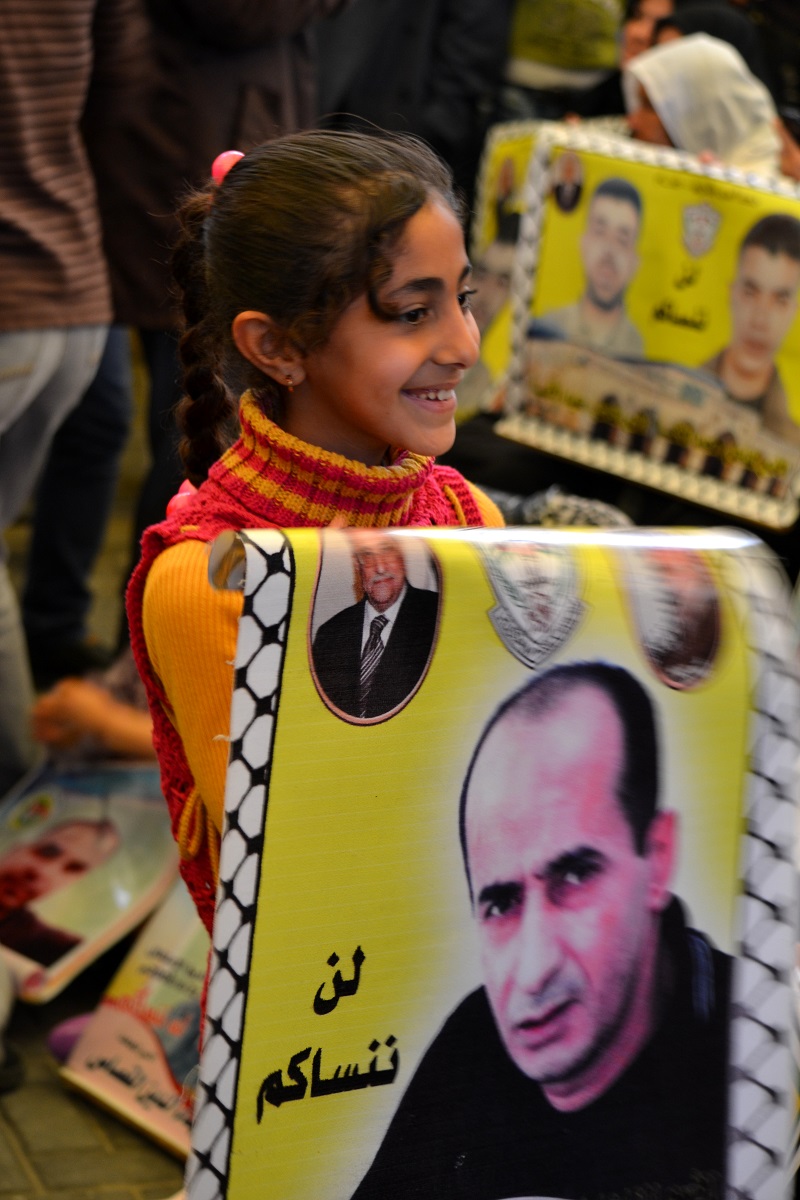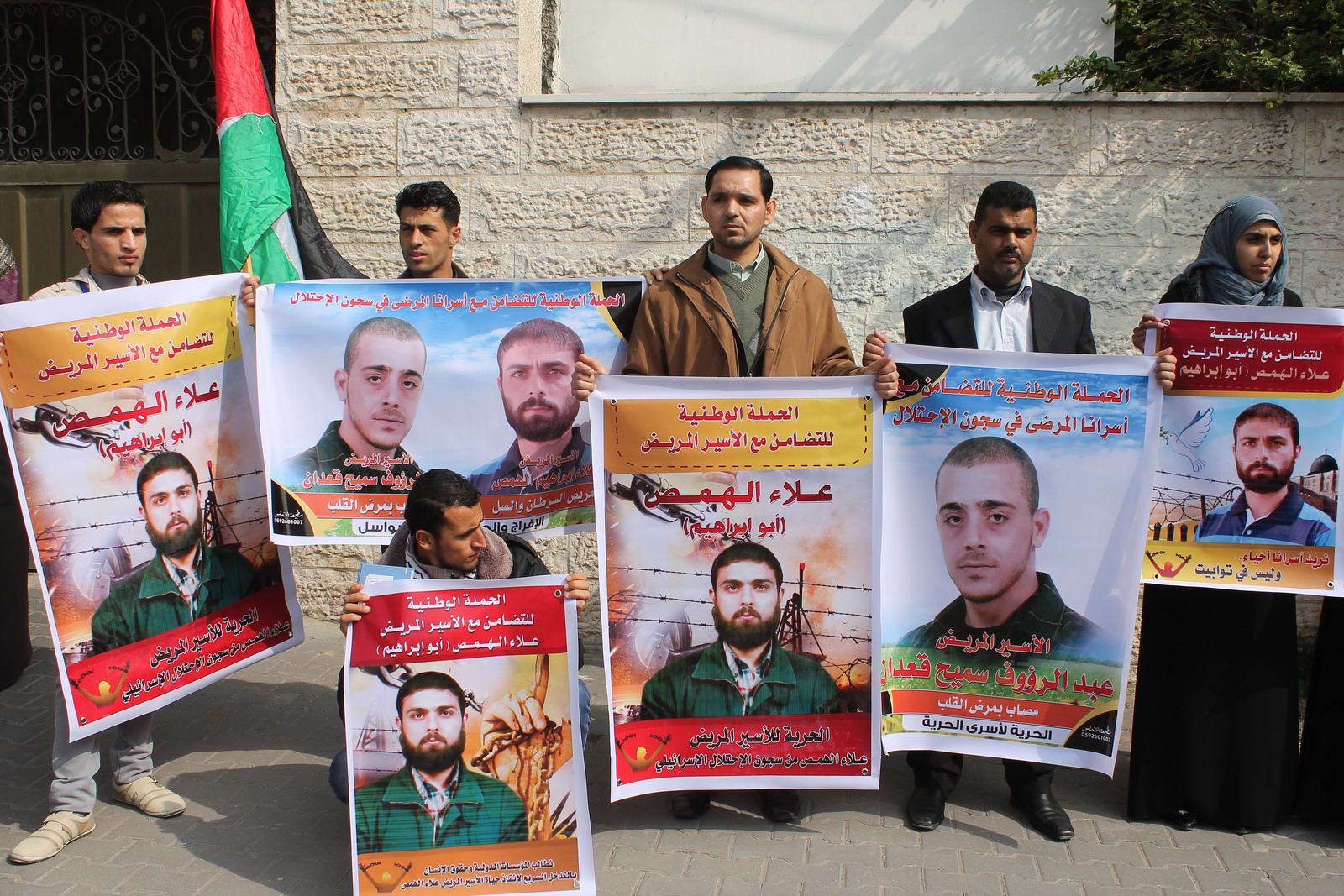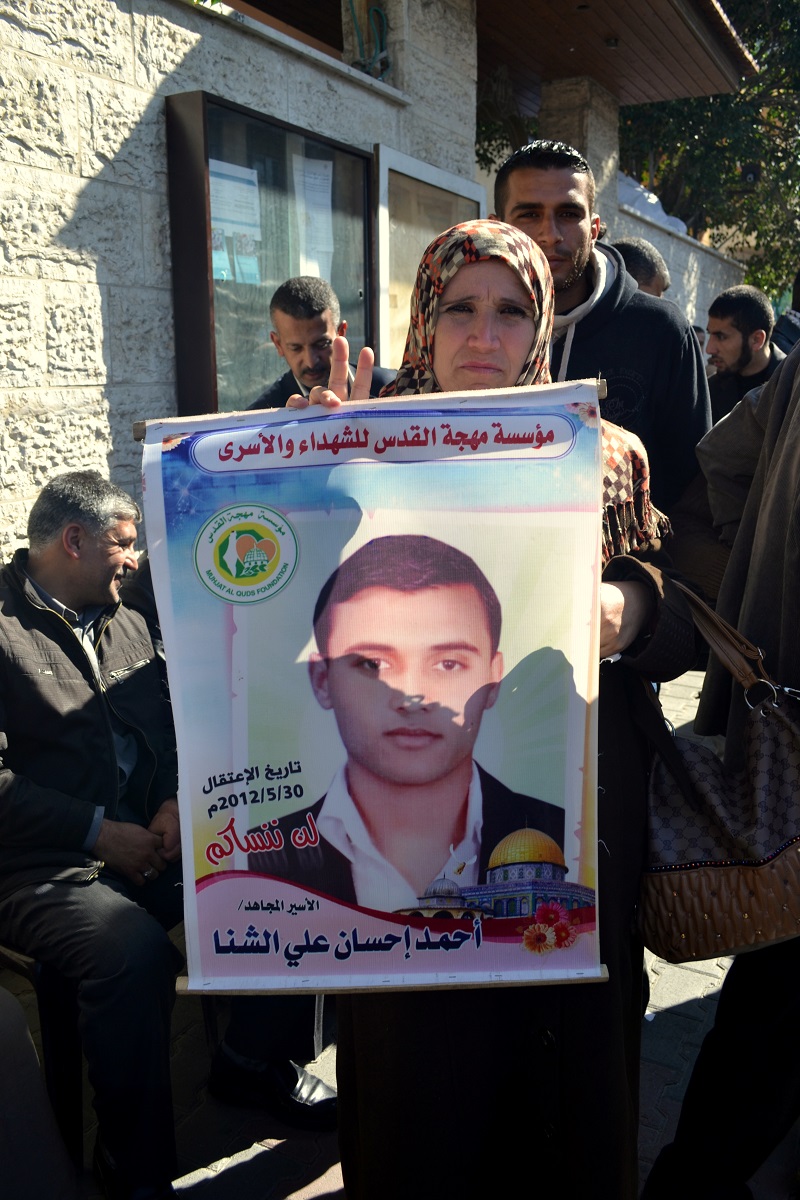Tag: sit-in
-
PHOTOS: Gaza calls for the rights of Palestinian prisoners and the freedom of Ahmad Sa’adat
27th March 2014 | International Solidarity Movement, Rosa Schiano | Gaza, Occupied Palestine On Monday, at the International Committee of the Red Cross in Gaza City, the weekly rally in solidarity with Palestinian prisoners in Israeli jails saw the participation of many prisoners’ families, released prisoners, and international and Palestinian activists. Each week, the rally focuses on certain topics, ranging…
-
PHOTOS: Palestinians rally in Gaza for hunger-striking and sick detainees
2nd March 2014 | International Solidarity Movement, Gaza Team | Gaza, Occupied Palestine In recent weeks, protests for both sick Palestinian detainees and those engaging in long-term hunger strikes have increased in the Gaza Strip. Last Monday morning, following a regular weekly sit-in in the International Committee of the Red Cross’ Gaza office, demonstrators rallied…
-
“I hope one day all the Palestinian prisoners in Israeli jails will win their freedom”
11th February 2014 | International Solidarity Movement, Gaza Team | Gaza, Occupied Palestine Friends and relatives, as well as local and international activists, gathered Monday morning at the International Committee of the Red Cross in Gaza to demonstrate, like every week, in support of the Palestinian prisoners in Israeli jails. “My cousin was arrested during…



